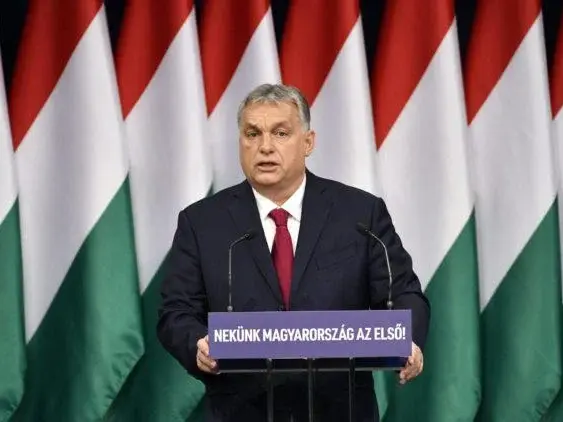D84 Intelligence Unit interviewed with the head of the Free Market Foundation, Máté Hajba, and a former member of parliament, Zoltán Kész, on foreign agent law, the situation of civil society, and democracy in Hungary.
How do you describe from the 2017 NGO Transparency Law, Law on the Protection of National Sovereignty, to Foreign Agent Bill legislative changes in Hungary shape the administration’s attitude towards civil society?
Zoltán Kész: The 2017 NGO Transparency Law, the 2023 Law on the Protection of National Sovereignty, and the 2025 Foreign Agent Bill form a chain of mutually reinforcing legislation that institutionalizes the Hungarian government’s hostile attitude toward civil society. Their aim is not merely transparency, but to intimidate and stigmatize critical civil society organizations and restrict their operations by labeling them as “under foreign influence.”
At the same time, the government supports its own politically loyal civil society organizations, thus creating a dual system: it sanctions independent organizations and strengthens those that are friendly to the government. The civil sphere is therefore gradually losing its autonomy, and critical voices are being silenced in the name of “national sovereignty.”
Máté Hajba: The administration has always been unfriendly towards those who disagree with its policies. However, Fidesz, the party that controls the state, has been emboldened by its election victories, and its legitimacy stemming from the election results enabled it to go further in making it difficult for dissenting voices to exist. Fidesz operates based on the idea that identifying an enemy who supposedly threatens a group of people, in this case a nation, creates unity. Fidesz constantly develops and maintains the illusion of this external threat, and NGOs are deemed an excellent target. Often, the aim of such legislation is not to outlaw civic organizations, but to turn them into scapegoats for issues, such as the bad economy or the dismal international image of Hungary, thus shifting the blame from the government to others—this way, similar legislations are often used as a red herring, distracting from serious topics.
Do you consider, Foreign Agent Law efforts of the Hungarian Government as part of the “Authoritarian Playbook”? Which countries’ legislations and applications are the inspirations for the Hungarian Government?
Máté Hajba: It is definitely part of Putin’s playbook. It is in Putin’s interest to undermine liberal democracies with illiberalism and sow discord in Europe and America. The anti-NGO legislation bears Putin’s hallmark. The Hungarian government even used the same excuse for the legislation that the Russians did, namely that similar legislation exists in the US, such as FARA. In reality, FARA is not similar at all.
How do you describe the real reach of civil society in Hungary? Who are the dissidents, partners, and allies of civil society? How wide can NGOs affect public discourse?
Zoltán Kész: Hungarian civil society is extremely limited today, but not insignificant. The government has completely withdrawn from social tasks, so assistance to refugees, minorities, homeless people, people with disabilities, and others in need is mainly provided by persecuted civil society organizations, with far fewer resources than ten years ago.
True dissidents, rights defenders, human rights, and independent research organizations are struggling to survive without foreign support, while government propaganda spends billions to silence civil voices. Their allies are the last independent media outlets and grassroots communities, but they, too, are under constant pressure.
In the public sphere, the narrative of “national sovereignty” almost completely drowns out the voices of civil society due to the government’s overwhelming communication power. Nevertheless, civil society remains one of the last autonomous pillars of Hungarian democracy. Every single human fate abandoned by the state, every life saved, and every successful legal defense is thanks to this small but persistent circle.
How does the opposition view civil society? Do you have any credible expectation of changing the attitude of the state after a possible opposition victory in elections?
Zoltán Kész: The Hungarian opposition has a fundamentally optimistic view of civil society: they see civil society as the last line of defense for democracy and the guardian of social solidarity. Most opposition parties emphasize that after a change of government, they would restore the autonomy of civil society organizations, end politically motivated discrimination, and ensure public participation and access to resources for critical actors.
However, the Office for the Protection of Sovereignty, established by the Orbán government in 2023, clearly shows how toxic the relationship between the state and civil society has become. This publicly funded institution was explicitly created to persecute organizations “supported from abroad,” while de facto implementing the ruling party’s political agenda. It is a striking contradiction that while this office is supposed to act against “foreign influence,” the Hungarian government is now openly supported by Russia and China. Yet, these influences are not considered problematic in the eyes of the office.
I believe that an opposition victory would significantly improve the situation of civil society: a partnership could develop between civil society and the state, political stigmatization would cease, and civil society’s role in society would once again be recognized as serving the public interest. Hungary’s future democratic renewal will largely depend on whether the new leadership can treat civil society as an ally rather than an enemy.
How do you describe the attitude of the European Union towards the Hungarian Government with respect to relations with NGOs?
Máté Hajba: The EU is unable to set the agenda in Hungary; it is the other way around. The Hungarian prime minister, Viktor Orbán, can hold the EU decision-making hostage through his veto power, and he can use the laws against the Hungarian civic society as leverage. When the EU demands concessions, he can ease up on this legislation, which has no detrimental effect on him.
However, if the EU persists in interfering in Hungarian affairs, it usually plays right into Orbán’s anti-EU narrative that Brussels is meddling. This only helps the Hungarian government.

